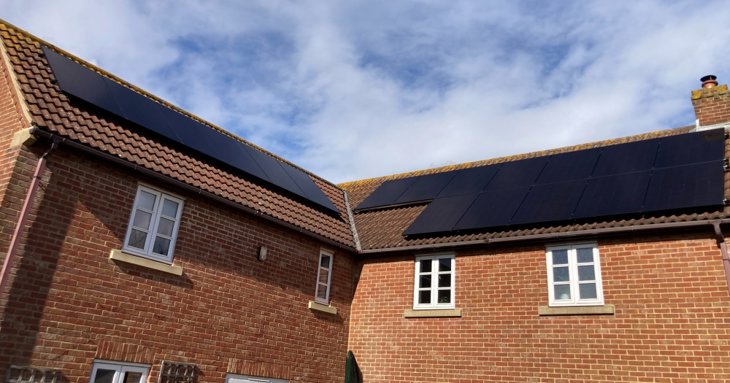With electricity prices through the roof, many homeowners are looking into ways of reducing bills and saving energy. But without switching energy providers, what can we do?
According to Gloucestershire-based renewable energy specialists, Immersa, homeowners wanting to take control of their own energy usage and save money for years to come could consider installing a solar-powered system.
In fact, more than 50,000 UK households had solar panels fitted to their homes in the first quarter of 2023, with installation at its highest point for over seven years.
Immersa was founded in 2015 and started life as a renewable-energy consultancy — fast forward seven years and it has a staff of 40 and a place on The Sunday Times Fast track 100 list.
It not only provides detailed and bespoke quotes and advice to households but installs solar panels, battery storage systems and electric vehicle chargers, all using cutting-edge technologies allowing the user to track every trace of energy consumption down to the last penny.
Michael Lamerton, director of sales at the Dursley-headquartered Immersa said: 'One of the first things we do is look at how much energy people are using, what their consumption is and how they’re using their energy, so we can design a system accordingly that’s best for their needs.
'People’s energy usage is like an individual fingerprint – no two are the same. Everybody’s energy consumption will be slightly different. We all think we use energy in the same way, but we don’t. We look at exactly how you’re using energy and design a system that’s going to get you the maximum savings and the shortest payback.'
Many solar installers work in a very basic way where they will look at your house using images from Google Earth, then provide quotes based simply on how many panels they think will fit on your roof.
Whereas Immersa will do a full survey of your home, its measurements, your energy consumption and future plans, and will provide a bespoke report, complete with data, graphs and diagrams of how your house will look with panels, batteries and EV chargers, to show households exactly what to expect.
'Many people will only use about 25 per cent of the energy their solar panels make, no matter how many times they put the dishwasher on or how many days they work from home. With a battery storage system, the rest of the energy that would be going out to the grid is stored for them to use later, when the sun goes down,' said Lamerton.
'And one of the game-changing aspects of battery storage is the fact you're not just charging them from the panels — when the sun isn't out, you can charge them from the grid and they retain that energy to use later.'
This means a battery can be charged at cheaper off-peak times when electricity costs are reduced, and then used at peak rate times when electricity is more expensive.
So, not only can you start to make changes to, and control, how and where electricity is used, but households can also help reduce their carbon footprints and impact on the environment.





















